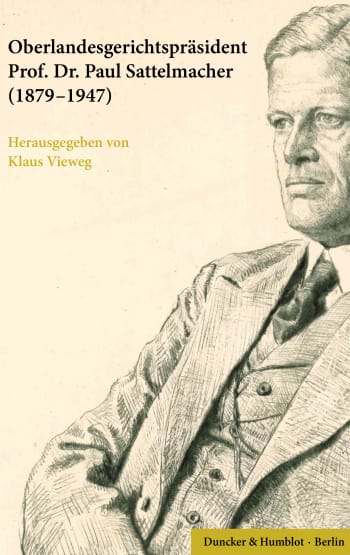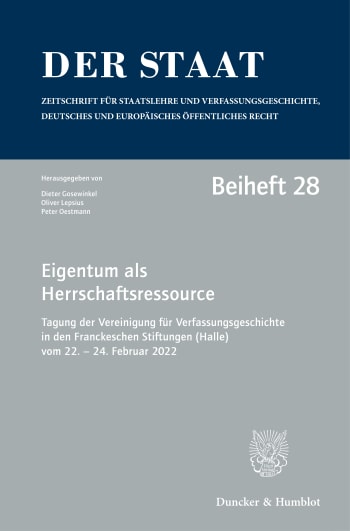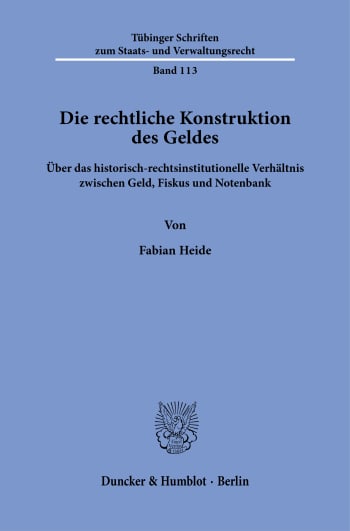(Source: University of Regensburg)
Organisator: Michael Reichenthaler
For organizational reasons, participants are requested to register by email
(michael.reichenthaler@jura.uni-regensburg.de) by 28 February 2026.
Final Program
Day 1 – March 19, 2026
12.00 – 12.30 Arrival
13.45 – 14.30 Welcome and opening remarks
Panel 1: Constitutional and Administrative Jurisdiction
13.00 – 13.45 Sarah Dersarkissina (Heinrich-Heine-Universität Düsseldorf)
Qui iudicat? Entwicklungsgeschichtliche Perspektiven auf die Abgrenzung
von Verwaltungs- und Verfassungsgerichtsbarkeit
13.45 – 14.30 Max Hopp, David Neuhoff (Ludwig-Maximilians-Universität München)
"Das Politische vor Gericht" - Zur Geschichte des Verhältnisses von
Verwaltungs- und Verfassungsgerichtsbarkeit
Panel 2: Institutional and Personnel (Dis)Continuities in the German Administrative Judiciary
14.45 – 15.30 Paul Schüller (Universität Regensburg)
Das Sächsische Oberverwaltungsgericht - Rechtstaatskontinuitäten und -
brüche zwischen Königreich, Republik und Diktatur
15.30 – 16.15 Philip Bockelmann (Leibniz Institut für jüdische Geschichte und Kultur Leipzig)
„Durchgängiger Rechtsschutz“. Walter Jellinek und die Neubegründung der
Verwaltungsgerichtsbarkeit nach 1945
Panel 3: The Establishment of a West German Administrative Legal Order and the Influence of EU Law
16.30 – 17.15 Julia Nebel (Universität Leipzig)
(Un)politische Richter(wahl): die Erstbesetzung des Bundesverwaltungsgerichts
17.15 – 18.00 Lennat Kokott (Bucerius Law School Hamburg)
Die Rolle der Verwaltungsgerichtsbarkeit bei der Entwicklung der Raumordnung in der Bundesrepublik
18.00 – 18.45 Philip Ermacora (Universität Augsburg)
Unionsrechtliche Einflüsse auf den Vorrang des Gesetzes
19.00
Public evening lecture by Prof. Dr. Hans-Christof Kraus (Universität Passau)
Day 2, March 20, 2026
Panel 4: German and French Administrative Jurisdiction
9.00 – 9.45 Lucya Jakobi (Hellriegel Rechtsanwälte)
Der verwaltungsgerichtliche Untersuchungsgrundsatz im deutsch-französischen Vergleich sowie vor dem EuGH
9.45 – 10.30 Leana Clerc (Jean Moulin Lyon 3 University)
The influence of supreme administrative jurisprudence on lower courts: a Franco-German comparative analysis
10.30 – 11.15 Paul-David Chouinard (University of Ottawa)
The influence of French and English Law on Administrative Justice: Reforms in the province of Quebec
Panel 5: Administrative Jurisdiction in Italy and South Tyrol
11.30 – 12.15 Federico Margheri Biagi (University of Rome Tor Vergata / LUISS Gudio Carli)
Unbestimmte Rechtsbegriffe and the Theory of Administrative Discretion: The Influence of German Theory on the Italien Doctrine of Technical Assessments
12.15 – 13.00 Philipp Rossi (vormals Universität Innsbruck)
Verwaltungsgerichtsbarkeit und Minderheitenschutz am Beispiel Südtirols
Panel 6: The (Non-)Emergence of administrative courts in Russia, Ukraine and Hungary
14.00 – 14.45 Dr. Alexander Gorskiy (Eberhard-Karls-Universität Tübingen)
Staat, der Allmächtige? Zur Problematik der fehlenden eigenständigen Verwaltungsgerichtsbarkeit in Russland
14.45 – 15.30 Dr. Yuliaa Tsurkalenko (Institut für Ostrecht)
Die historische Entwicklung der Verwaltungsgerichtsbarkeit in der Ukraine im europäischen Kontext
15.30 – 16.15 Prof. Attila Barna (Széchenyi Universität Győr)
Streitigkeiten und Mustern – Die Gründung des Verwaltungsgerichts in Ungarn - Versuche zur Etablierung einer Verwaltungsgerichtsbarkeit in Ungarn, in der zweiten Hälfte des 19. Jahrhunderts
Panel 7: Influences and Developments of Administrative Jurisdiction in Central and Eastern Europe
16.30 – 17.15 Dr. Weronika Szafrańska (Uniwersytet Śląski w Katowicach)
Ist die polnische Verwaltungsgerichtsbarkeit „österreichisch“ geblieben? – Auf der Suche nach Kontinuität und Wandel
17.15 – 18.00 Michał Szudrowicz, Andrzej Paduch (Adam Mickiewicz University Poznan)
The role of the head of administrative court of the highest instance in ensuring the effectiveness and stability of administrative justice
18.00 – 18.45 Prof. Tomáš Gábriš (Trnava University) Institutional Unification of Administrative Justice in Czechoslovakia in the
Interwar Period (Problems, Challenges, Solutions)
End of the conference

















